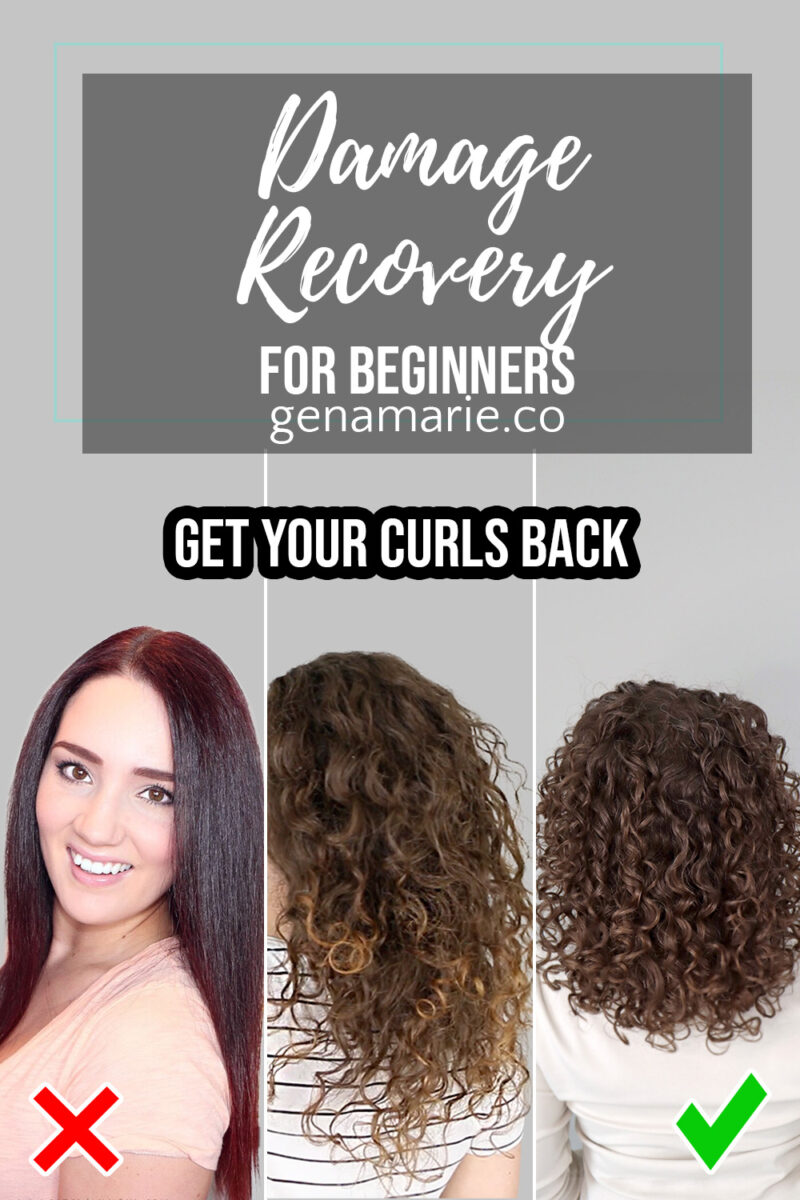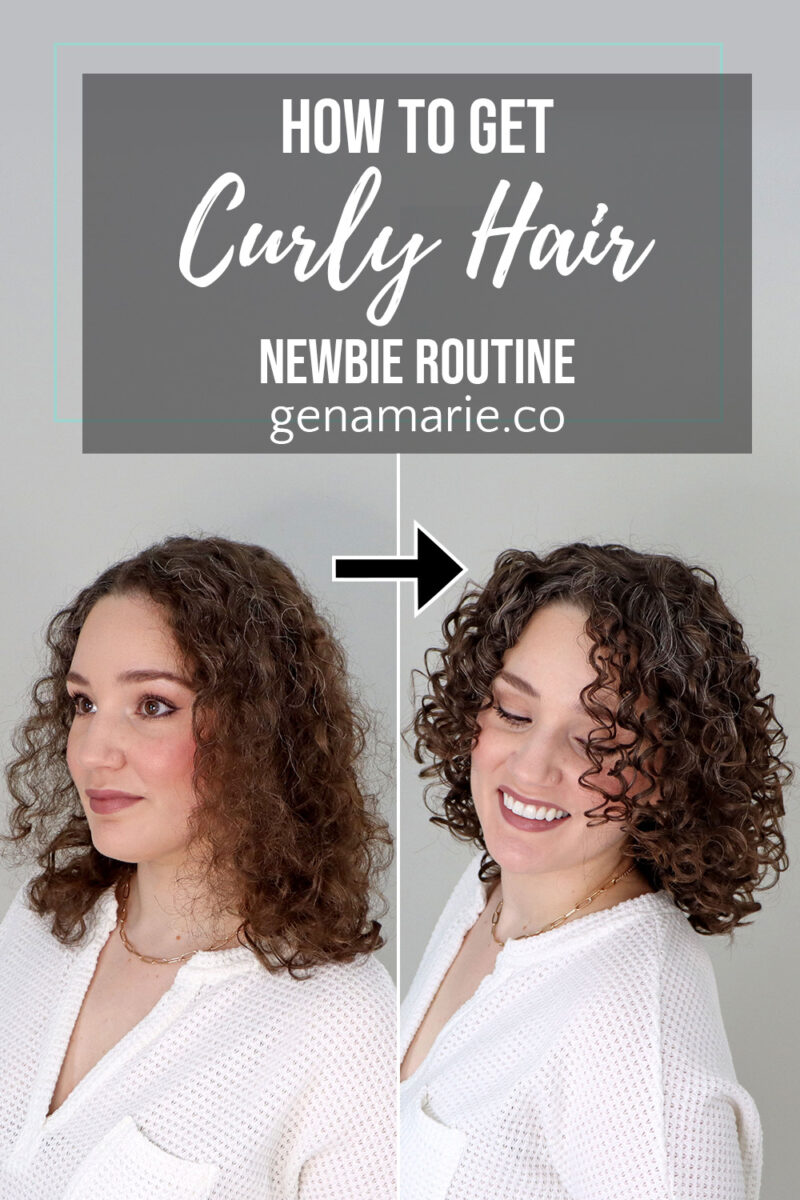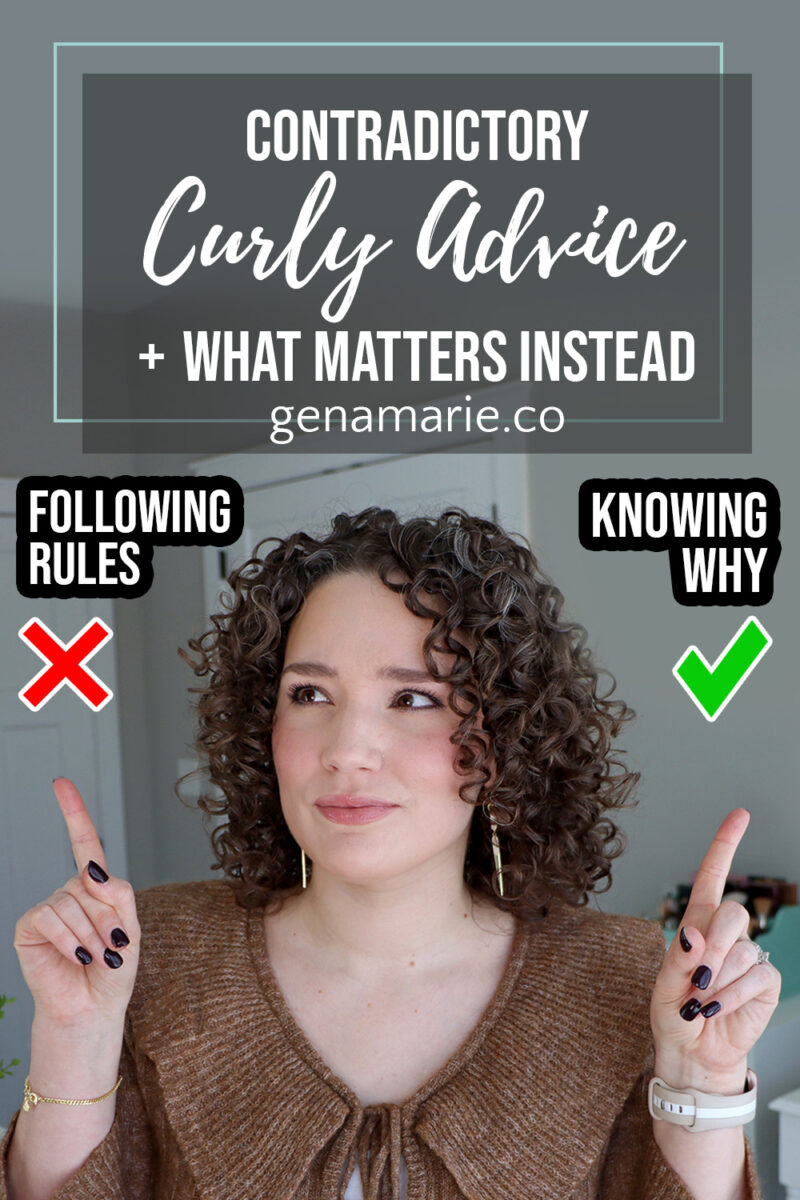
Are You Forcing Your Curls? How to Know If You’re Giving Up Too Soon
Feeling discouraged, frustrated, or unsure whether wearing your naturally curly or wavy hair is even worth it? If you’ve been following this Beginner Curl Series,

Trying to figure out what is going on with your curls is like solving a math problem sometimes. It can be hard to tell the difference between various hair ailments and there are so many similar symptoms. Does it need protein or moisture? Is it just damage or are your products not right for you?
I’m going to walk you through how to diagnose your hair and how to treat it depending on its unique needs.
I’m also teaming up with Curlsmith for this video, one of my favorite natural hair brands. I love how their tagline is “Food for Curls,” because their various recipes are designed to give your hair what it needs. Curlsmith products are vegan and cruelty-free.
They are also having a sale on their Strength Kit which you can learn more about below.
Examine your hair and determine if there is anything “wrong” with it. We all have bad hair days when our wash day just didn’t turn out the way we hoped, and that’s not always an indicator that something is going on. If you just had a bad hair day, watch this video to learn the Causes of Failed Wash Day.
What you want to look for is a sudden change in your hair or a sudden decline in your hair’s health. Symptoms such as frizz are always going to be there, but if you’re noticing an excessive amount compared to usual then there’s something you need to tweak or treat.
If you just tried something new and you didn’t like your results, then try it again in a different way such as on damp hair instead of wet, or adjust the amount of product used. However, if you have any of the following issues all the time then you could be using products that aren’t right for you or are poorly formulated.
Symptoms:
– Frizz
– Curls fall and don’t hold
– Lack of definition
Solution:
– Use a stronger hold gel, better long-lasting formula
Symptoms:
– Curls fall and appear limp
– Flat / no volume
Solution:
– Use more lightweight products
– Avoid heavy butters and oil ingredients if you have fine hair
Symptoms:
– Sticky
– Tacky
Solution:
– Opt for more slippery-textured gels, custards, soufflees
Symptoms:
– Dry, brittle
– Dull
– Curls fall stringy
Solution:
– Use more moisturizing products
– Look for film-forming humectants ingredients such as aloe and flaxseed
– Look for oil ingredients to help lock in moisture
– Layer a cream under your gel
Protein and moisture are not opposites and our curls need both. Unless you’re doing something extreme like protein treatments, using a protein-rich routine back to back, or over-moisturizing your hair, you likely won’t have an issue. It’s also a common misconception that adding more protein will fix excess moisture and vice versa, which is not exactly the case.
The most foolproof way is to do a stretch test to test your hair’s elasticity.
| Moisture Overload | Hygral Fatigue |
|---|---|
| Overly soft | Mushy feeling |
| Damp/wet feeling, takes forever to dry | Damp/wet feeling, takes forever to dry |
| Weighed down | Limp, Curls have no bounce |
| Happens after one wash | Happens over time Prolonged damage to the hair |
| Solution: 1. Clarify with the Curlsmith Detox Kit 2. Use a lightweight conditioner or deep conditioner with protein like the Curlsmith Multi-tasking conditioner 3. Use lightweight stylers with some protein like the Curlsmith Shape Up Aqua Gel | Solution: 1. Use a bonding treatment like Curlsmith Bond Curl Rehab Salve 2. Shampoo 3. Use a lightweight conditioner or deep conditioner with protein 4. Use lightweight stylers |

If you’re interested in trying some of the Curlsmith Strength Recipe products, you can save by getting the Strength Kit, which is currently ⅓ of the price ($25 off). The kit contains the Core Strength Shampoo, Bond Curl mini, Multi-Tasking Conditioner, and the Shape Up Aqua Gel (mini). Promo ends August 25, 2022.
| Lack of Moisture | Protein Overload |
|---|---|
| Feels dry/brittle | Feels dry/brittle |
| Limp, stringy | Limp, stringy |
| Frizz & flyaways | Frizz & flyaways |
| — | Breakage & excess shedding |
| Happens after one wash | Happens with repeated excessive protein use when not needed |
Solution: 1. Shampoo 2. Use a deep conditioner with light protein or protein-free like the Double Cream Deep Quencher 3. Use moisturizing or light-protein stylers | Solution: 1. Clarify with the Curlsmith Detox Kit 2. Use a moisturizing, protein-free deep conditioner like the Double Cream Deep Quencher 3. Use moisturizing, protein-free stylers |
Buildup is very common and is most obvious by the feeling of your hair. Buildup can be caused by products, hard water minerals, or just our scalp’s natural sebum. If you know you have hard water in your home, you will likely get buildup on your hair from the minerals.
| Product buildup | Hard water buildup | Oily scalp buildup |
|---|---|---|
| Dull appearance | Dull appearance | Shiny |
| Weighed down, limp curls | Weighed down, limp curls | Weighed down roots |
| Sticky/product-y feeling | Brittle/dry feeling | Greasy feeling |
| Products not absorbing | Products not absorbing | Products not absorbing |
| Wet frizz | Wet frizz | — |
| Hair doesn’t feel clean after shampooing, low lather | Hair doesn’t feel clean after shampooing, low lather | Hair doesn’t feel clean after using a cowash or a low-poo |
| Solution: 1. Pre-treat with the Curlsmith Super Slip Pre-Biotic Primer or an oil 2. Clarify with the Detox Shampoo 3. Deep condition 4. Style | Solution: 1. Pre-treat with the Curlsmith Super Slip Pre-Biotic Primer or an oil 2. Clarify with the Detox Shampoo or a special chelating shampoo for hard water 3. Deep condition 4. Style | Solution: 1. Shampoo 2. Shampoo again 3. Use a lightweight conditioner, avoid the scalp 3. Apply lightweight stylers |
Damage occurs from excessive heat, chemicals, hair dye, the sun, and wear and tear from brushing. This can make the hair harder to manage and require more attention because its higher porosity so it loses moisture easily and is weaker. If you have healthy hair, you may just be due for a routine trim.
Symptoms:
– Split ends
– Breakage
– Poor length retention
– Straight pieces or straight ends
– Tangles & excess shedding
– Stringy
– Dryness & loses moisture quickly
– Frizz
– Hard to refresh
Solution: Grow it out and get frequent hair cuts
Maintenance:
– Pre-poo oils
– Frequent trims
– Protein deep conditioners
Symptoms:
– Tangles & excess shedding
– Single strand knots
– Hard to refresh
– Breakage
– Stringy, straight ends
Solution: Get a hair cut or trim
Which of these common issues did you resonate with the most? There’s not always a clear answer for the one thing your curls need because it’s often multiple things. You can have multiple “issues” going on at once and they will come and go. For most of us, these issues pop up all the time and it doesn’t necessarily mean there is something wrong with your hair, but rather maintenance that needs to be done.
I hope this comprehensive guide helps you problem-solve with your hair without overwhelming you. My goal is to help you diagnose and treat your hair on your own since I am not able to work one on one with you yet, but hope to one day.


Feeling discouraged, frustrated, or unsure whether wearing your naturally curly or wavy hair is even worth it? If you’ve been following this Beginner Curl Series,

If you’re trying to wear your hair curly and you feel like you’re doing everything right but your hair still doesn’t look how you want,

If you think you might have curly hair but don’t know where to start — or you tried before and your curls were frizzy and

Curly hair advice is full of contradictions — and no one explains how they’re supposed to work together. If you’ve ever tried to research curly
One Response
Love these posts. I just started to embrace my curls after years if heat damage. Thank you. Also did u have video of how to refresh after failed wash day?